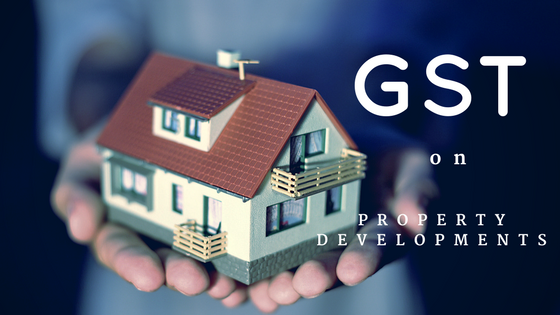GST changes for property developers are coming
GST changes are coming for property developers, from big end of town developers to smaller, family property developments. From July 1 2018 property developers will face a change in the way GST is collected and submitted to the Australian Taxation Office, in relation to developments of new residential premises.
The GST change will require the purchasers of a new residential premises to remit 1/11th of the sale price direct to the ATO. Currently the whole sales proceeds would be paid to the vendor, then the vendor would pay any GST owing.
Why this is happening? Some developers were selling properties and receiving the sales proceeds, and failing to remit any GST owing.
What will happen from July 1?
A property developer selling new re3sidential premises will need to give each purchaser the following:
- When GST is payable.
- The name and ABN of the entity that has sold the property.
- The amount of GST that is necessary to be paid to the ATO.
The purchaser will remit 1/11th of the purchase price to the ATO at the date of settlement.
How does it work you ask? Let us use an example:
On 3 September 2018, Bill enters into a contract for the purchase of a new apartment for $770,000. The contract of sale included the correct information so Bill can withhold and remit the correct amount of GST payable to the ATO at the date of settlement.
Settlement occurs on 6 October 2018. Bill’s lawyer tells him that he will be required to make a payment to the ATO on or before 6 October 2018. As part of the settlement, his lawyer makes a payment as his agent to the ATO for a settlement of $70,000 (being the GST component of the purchase).
The property developers receives a credit for this amount in their December BAS.
These new laws will potentially see a cash shortfall, so a quick lodgement of the BAS will be an important part of the cash flow management strategy for any property developers.
The implications also go beyond the family or business undertaking a property development. A settlement agent and finance broker involved in the transaction will also need to call in the expertise of a property tax accountant to make sure they do not breach their obligations.
It is also important to note that these GST changes are in addition to the changes which require purchases of residential property in excess of $750,000 from foreign vendors to withhold tax.
What we are seeing is that the government is increasingly attempting to tax at the source revenue from property transactions. This increased focus on families and smaller property developments will mean developers will need careful tax and cash flow planning from a property tax business advisor.
At Cannan Accountants we are on top of the coming GST changes for property developers, and we have a team of specialised accountants with skills in assisting property developers. Talk to us so we can help you minimise the effects of these new laws.

